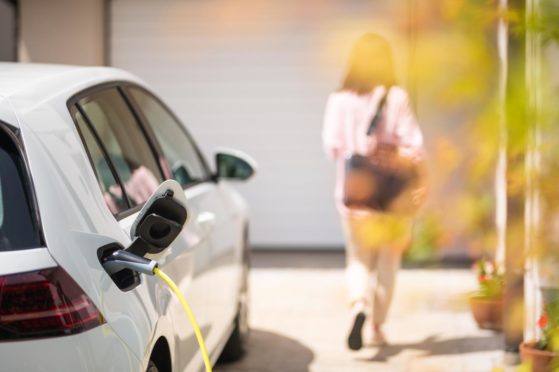Lynn Gracie is a Private Client Tax Director at Anderson Anderson & Brown. Here, she discusses the changing attitudes towards and income tax benefits of company cars, and the potential impact of electric cars.
“Some of you reading this will be old enough to remember the 1980s, when big hair and shoulder pads went hand-in-hand with Golf GTIs and, dare I say it, Ford Capris with the must-have furry dice.
If that rings some nostalgic bells, then you will almost certainly be of the generation that remembers the company car era and its hilarious twitching of net curtains when a neighbour arrived home with that most coveted employee perk. This was often a Ford Cortina in a dodgy metallic green, or, if you were lucky enough to be in the ‘executive’ bracket, then a maybe BMW 3 series with that all-important sun-roof.
The reality was that many employees in the UK simply expected to be provided with a car as an integral part of their salary package.
In those days, the income tax benefit of a company car was negligible.
It was far better from a cash perspective for employees to be provided with car and paying a small benefit tax charge, rather than funding a car themselves via additional taxed salary.
How times have changed.
I would go as far as to say that it is now a rarity to know someone who has a company car.
General attitudes to car use have certainly affected the marked reduction in company car provision, with many employers recognising the need to reduce their company’s carbon footprint, but it is also the case that tax policy over many years and various governments has played an important role.
The 1980’s company car was only taxed on Directors and ‘Higher Paid’ employees who were defined as earning over £8,500 per annum.
Successive governments chose not to increase this earnings threshold, no doubt because it was an easy tax target.
Tax on fuel provision was introduced and a gradual increase in rates was applied to car values and from 2002 the taxable benefit has been calculated based on emissions.
The resultant benefit tax and employer national insurance charges meant that in most cases it simply did not make financial sense for companies or employees to consider a company car.
Fast forward to 2021 and car manufacturers are falling over themselves to create the best electric car solutions before the 2030 petrol and diesel engine ban.
This has led to an interesting marketing strategy for many luxury car brands.
Eco-friendly yet luxurious electric cars are perhaps the new must-have accessory.
Buying one is seen to be the automotive equivalent of giving up meat, proving very attractive for those who want to do the right thing for the planet but still want a performance car that oozes kerb appeal.
Tesla, Porsche, BMW and Audi are just some of the manufacturers all competing for this luxury end of the E-car market.
While charging is seen as an issue for many, especially for significant distances, there are now over 24,000 charging points in the UK.
Tesla currently leads the way with some 30-minute supercharging stations but it is generally accepted that more charging points are needed for all car types.
Until recently, zero emissions meant zero tax but currently the benefit is one per cent of the list price, rising to two per cent in 2022-23.
Tax breaks on electric cars are attractive and it is worth talking to an advisor to understand how you can realise the tax benefit.
Take for example a Tesla Model S Plaid which costs over £130,000. This is a zero-emission car for any petrol-head who appreciates performance – it can hit 0 to 60 mph in just under two seconds and has a range of nearly 400 miles – with an annual taxable benefit of £1,300, and maximum tax due of £600 per tax year.
Compare that to a 4-litre petrol car in the same luxury price bracket and you could be looking at a taxable benefit of 37 per cent of the list price with a tax bill of over £22,000 per tax year.
For executives looking to negotiate their remuneration package, or directors of their own companies who fancy treating themselves to a car, maybe a new luxury electric company car is a unique tax break opportunity.”
Contact Anderson Anderson & Brown for private client tax advice.

